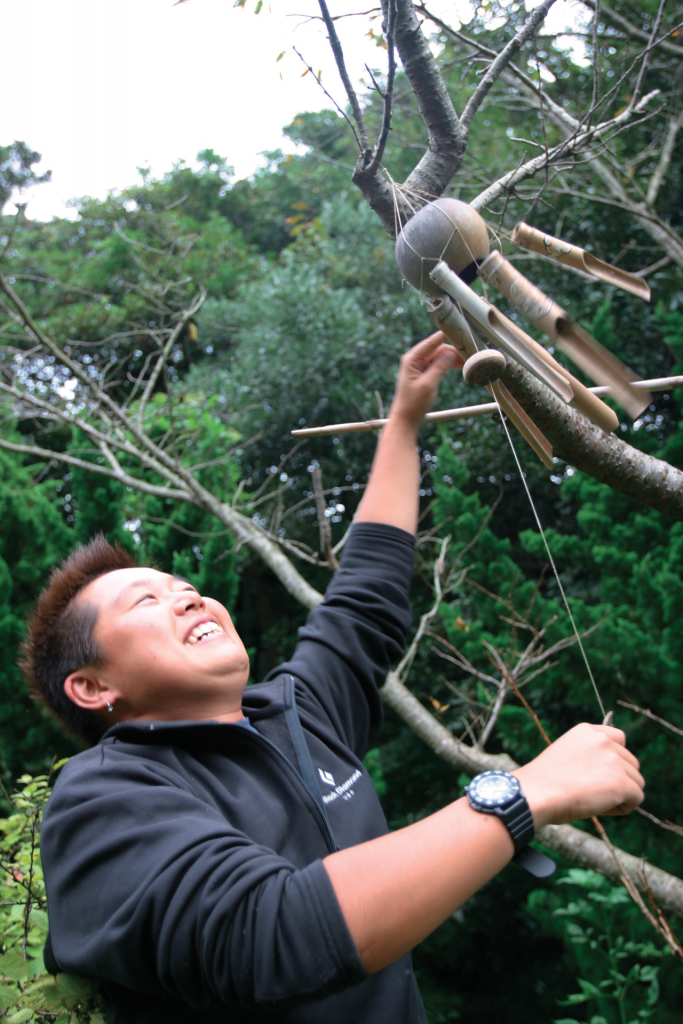My parents wanted to give me opportunities to explore the world of music from an early age and, for some reason, they figured sending me to piano lessons would do the trick. On the first day of class I was enamored with the “metronome.”

During class, I ended up breaking it due to my youthful curiosity. This disturbed the young, female college student assigned to teach me, and she ran from the room crying. So, my piano lesson ended before it began.
I also recall playing around with an old guitar – with only four strings remaining. I would lay the instrument on the double bed, wrap clear tape around my fingers to form a triangular shape and play the guitar like a koto (traditional Japanese string instrument).
The feeling dancing from my fingertips kept me enthralled with this “kiddie koto.” The vibrations from the guitar resonated with me as they passed through the mattress.
I have to admit, there was a time in junior high when I was really into enka (traditional Japanese songs). I was taken in by the lyrics which were uncommon compared to other songs of those days.
To me, they expressed the beauty of Japan and its people’s unique take on life and love. The images which rose from the lyrics introduced new worlds to me.
Those halcyon days of youth passed as did my interest in enka, and the next time I felt uplifted by music was at a local festival in a small village. Most Japanese festivals feature taiko (traditional Japanese drums) as the musical staple.
From the bon odori of summer to winter festivals, Okinawa’s eisa festival and the islander’s hounensai (rice festival), each expresses prayer and faith in its own unique traditional dance and musical rhythm.
It’s not just the beat of the taiko which you feel. Rather, it is the feeling and spirit of the moment. Even if I can’t hear the voices, feeling “everyone having fun” and “this part must be sad” comes through loud and clear. I listen to the dance with my eyes and the song with my heart.
Just recently a friend proposed, “Want to head over to an outdoor live show on the beach?” At first I wondered whether or not this would be fun for me, but the hesitation soon passed. The concert-goers were well sauced as they danced, and their movements sent the rhythms my way.
Then, at the end of their set, the band began signing as they sang, and the whole crowd started signing along with them as they played the song again.
“I’m deaf, so I was really happy when you started signing,” I expressed to the band (Painukaji Ma-Chan) after they finished their set.
The vocalist, Ma-Chan, replied, “We noticed you in the crowd and decided to ‘sign’ at the end.”
Although I was unable to hear their music, I will never forget that feeling of dancing barefoot on the beach.





